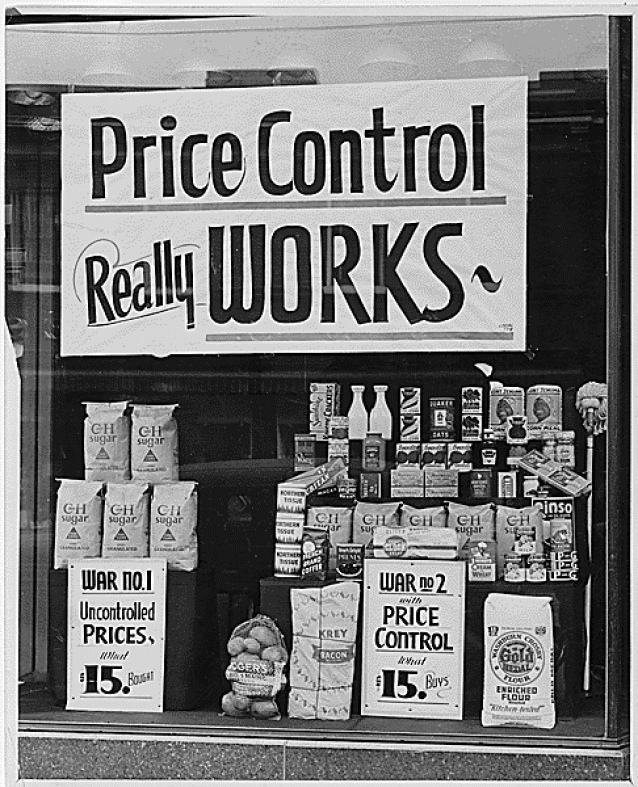Price Controls???
I just got back home from half a year in Malaysia, experiencing Asia and continuing my studies. While I was there I had read about Parliament introducing a Price Control Bill to "shelter" the little man from the vagaries of the excesses of Capitalism. Since getting back, there seems to be no real honest opinion being given about the Price Control issue to the public through the media. The only sound opinion being given has been on Business Daily and we all know that the average person doesn't read that publication. Furthermore, the opinion piece despite being well written was long and I know most people who do not have an understanding of the implications of price controls, will find it beyond their scope.
So a discussion of this issue is pertinent. Price controls are usually set below the market clearing price. This market clearing price is the price that equates demand and supply, this is simple economics and should be pretty straightforward. The main reason that price controls are set is because some basic goods or goods that the authorities deem to be necessities, have market clearing prices well beyond the reach of some people who would need the product. They are usually very useful in the sporting world e.g. World Cup tickets, if the ticket prices were left to the forces of demand and supply, a great deal of S.Africans would miss the games because the market clearing prices would be well above what the current prices are. However the dynamics of sporting events are not the same as those for the food market, because firstly food is not a one off event, people have to eat all the time. Furthermore, the supply of world cup tickets is fixed, there are a limited number of games and seats whereas populations grow and mouths to feed usually grow with time.
The key issue for me is that the implementation of price controls firstly; will not achieve its objectives and secondly will be detrimental to the future of this country. To begin with, the reason prices of basic foodstuffs is such an important issue, is because in this country, erratic weather patterns have played a nasty hand in the supply side of the food equation, this has often lead to large swings in food prices, with the swings being upward more often than not. Recently this has become really obvious, the country suffered from severe droughts in 2008 and this lead to the maize shortage and subsequently the maize scandal. This was followed by periods last year where there were such surpluses in the agricultural sector that we saw milk being poured down drains, this clearly caused a huge uproar. The issue then is not with the price but with the supply, when supply situations are good, we see relatively good prices but when the supply is scarce we see the obnoxious prices that we witnessed in 2008.
Price controls will not deal with this instability, they will not take away the volatility of food availability, they will in fact exacerbate the food volatility. With price controls, apart from the political upheavals that will follow naturally from having government offices deciding on food prices, we are likely to see a situation like that in China during the Great Leap Forward, when the price is too low, farmers will not bother to farm because they are not going to earn anything from their efforts, when the prices are high relatively to the costs, the farmers will over supply. This volatility then won't have gone away it will just move from price volatility to supply volatility.
The second issue is to do with innovation, without ready and predictable markets for agricultural commodities, we are not going to create any incentive for scientists and farmers to come up with new crop breeds, new fertilisers and other innovations that will assist in eradicating food insecurity. Price controls will really mess up the food landscape. If people think that the situation is bad right now, they will be in for a shock once the price controls are implemented. The market most of the times makes much better choices than government bureaucrats ever can. The solution to this issue will be addressed on an upcoming blog post.
Search
About Me
- Samora
- Kenyan economic and financial research analyst.
Labels
agriculture
Balance of Payments
Business
Capital
Capital formation
Capitalism
CBK
Civil Service
Commodities
constitution
corruption
CPI
Currency
Debate
Different
EAC
Economic thought
Economics
Economy
education
Finance
Financial Reform
Freedom
GDP growth
Geopolitics
Hernando De Soto
ICT
incentives
inflation
Infrastructure
Innovation
Insurance
Interest Rates
Intergenerational Mobility
Investments
Kenya
media
monetary policy
money laundering
Mortgages
NSE
Pensions
Politics
property rights
quirkynomics
Real estate
Safaricom
Stimulus Programme
stocks
Taxation
Total Factor Productivity
vision 2030




